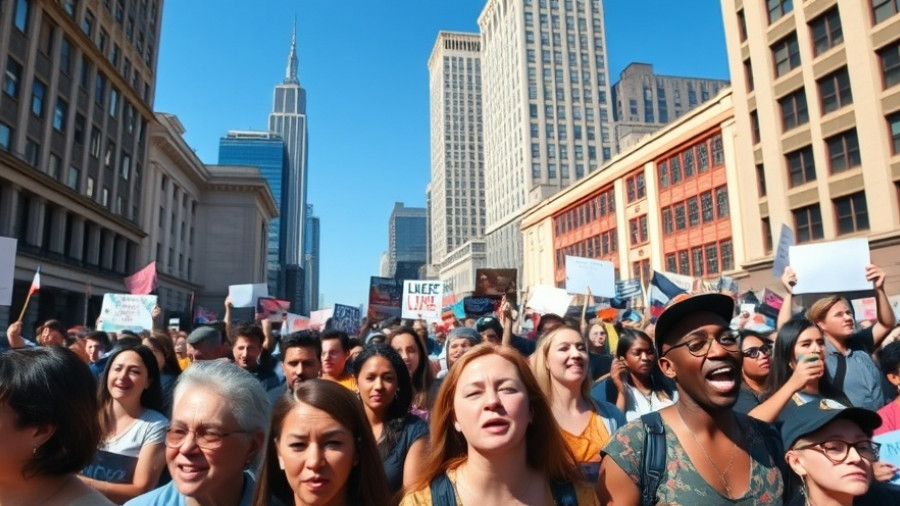
Crime Debate: Troops or Local Solutions?
In recent months, President Donald Trump's administration has faced increasing scrutiny regarding the deployment of National Guard troops to combat crime in major U.S. cities. A detailed analysis reveals that Trump's efforts have not targeted the nation's most violent cities, stirring controversy among local and state officials.
According to data from Stateline, Trump's National Guard deployments have primarily landed in cities like Memphis, Tennessee, while others like Milwaukee and Albuquerque, with significant crime rates, remain overlooked. This focus raises questions about whether these deployments serve as genuine attempts to curb violence or as political maneuvers targeting Democratic-led cities. In fact, only one out of the top ten cities with high violent crime rates has received troop support, as Trump's plans seem to favor larger Democratic-run cities offering a paradox in the deployment logic.
Is Crime Actually Rising?
Despite Trump's rhetoric declaring cities as ''overrun'' by crime, statistical data presents a different narrative. Crime rates have reportedly dropped sharply across the U.S., including significant decreases in violent incidents in areas Trump has threatened to deploy troops. Critics argue that while the deployment of military personnel can provide a temporary sense of security, it fails to address root causes of crime, ultimately leading to an artificial suppression rather than a permanent solution.
Legal Battles and Local Control
The legal landscape surrounding these troop deployments is fraught with complexity. Several Democratic governors and city leaders have challenged the authority under which Trump is mobilizing troops, citing it as an infringement on local governance. Courts have intervened by issuing orders that halt troop deployments in places like Chicago and Portland, questioning Trump's justification for sending in military forces amidst declining crime statistics.
Common Ground in Crime-Fighting
Interestingly, some Republican governors, such as Tennessee's Bill Lee, support the use of National Guard troops, hoping they will bolster local law enforcement's efforts. Nevertheless, the claims of heightened crime in some areas have often been contradicted by evidence suggesting crime in cities like New Orleans is on the decline. As officials debate the efficacy of federal military support, the critical question persists: How can communities achieve true safety without resorting to military solutions?
Future Implications and A Call for Collaboration
The circumstances surrounding the National Guard troop deployments reveal a broader issue that transcends politics: the need for collaborative efforts between federal and local authorities to genuinely tackle crime. As the legal battles continue, the focus should ultimately return to empowering communities with the resources and strategies necessary to address crime at its roots, rather than relying on military presence that may only provide temporary relief.
In conclusion, understanding the complexities behind these troop deployments is essential for citizens and policymakers alike. As discussions evolve regarding law enforcement strategies, the reallocation of governmental resources toward community-led initiatives may pave the way for a more sustained reduction in crime. Engage with your local representatives and advocate for solutions that empower communities and foster real change.
 Add Row
Add Row  Add
Add 




Write A Comment